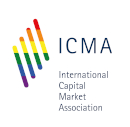
- About ICMA
- Membership
- Market Practice & Regulatory Policy
- Sustainable Finance
- FinTech & Digitalisation
- Education & Training
- Events
- Media & Market Data
Welcome to the International Capital Market Association
For over 50 years ICMA and its members have worked together to promote the development of the international capital and securities markets, pioneering the rules, principles and recommendations which have laid the foundations for their successful operation.
A global community for the capital markets
ICMA has over 620 members located in 70 jurisdictions drawn from both the sell and buy-side of the market.
ICMA engages with its global membership on market practice and regulatory policy issues through its expert forums.
Here are the key sections covering our work programmes, including contact details of ICMA staff responsible for each area.
-
Primary Markets
- ICMA Primary Market Handbook - Home
- Primary Market Committees ‣
-
Primary Market Topics
‣
- Accounting and Auditing
- Benchmark Reform and Transition to Risk-Free Rates
- MiFID II/R in Primary Markets
- Primary Markets Conduct (non-MiFID)
- Electronification
- Primary Markets Technology Mapping Directory
- Dialogue with Investors
- Prospectuses
- PRIIPs KIDs
- Retail Access to Bond Markets
- Market Infrastructure and Asset Servicing
- Market Abuse Regulation (MAR) - Primary Market Aspects
- Periodic Reporting / Continuing Obligations
- Taxation (Primary Markets)
- Other ICMA Primary Market Materials
- Primary Market Products ‣
-
Secondary Markets
- ICMA’s Rules and Recommendations for the Secondary Market ‣
- Secondary Market Practices Committee (SMPC) and related Working Groups ‣
- Central Bank Corporate Bond Purchase Programmes
- Electronic Trading ‣
- “T+1” – the shortening of standard settlement cycles
- Market Transparency ‣
- Market Data ‣
- Market Liquidity ‣
- Secondary Markets Regulation ‣
- Euro Safe Assets
- Archive
-
Repo and Collateral Markets
-
Legal Documentation
‣
- Global Master Repurchase Agreement (GMRA)
- ICMA GMRA Legal Opinions
- ICMA GMRA Clause Library and Taxonomy
- Master Regulatory Reporting Agreement (MRRA)
- Resolution Stays
- ICMA FAQs in relation to the GMRA and market turbulence
- 2011 Global Master Repurchase Agreement (GMRA) Protocol (Revised) Adhering Parties
- Repo and Collateral Council and related groups ‣
- ICMA ERCC Publications ‣
- “T+1” – the shortening of standard settlement cycles
- Market Data ‣
- Regulation ‣
- FinTech ‣
- Repo and Sustainability
- Other Resources ‣
-
Legal Documentation
‣
ICMA serves as Secretariat to the GBP, the SBP, the SBG and the SLBP, providing support while advising on governance and other issues.
ICMA also leads numerous other initiatives in sustainable finance. ICMA is at the forefront of the financial industry’s contribution to the development of sustainable finance and in the dialogue with the regulatory and policy community.
ICMA seeks to mainstream relevant FinTech developments and market electronification through all of its initiatives, activities and fora.
FinTech and market electronification are addressed through ICMA’s various committees, working groups and work streams as well as through bilateral discussions with member firms and technology providers.
Studying with ICMA
ICMA Education has been setting the standard of training excellence in the capital markets for almost five decades with courses covering everything from market fundamentals to latest developments and more.
FIND OUT MORE LINKEDIN DOWNLOAD THE BROCHURE
Already studying?
Accreditations


What’s happening at ICMA?
Find out about our latest announcements





